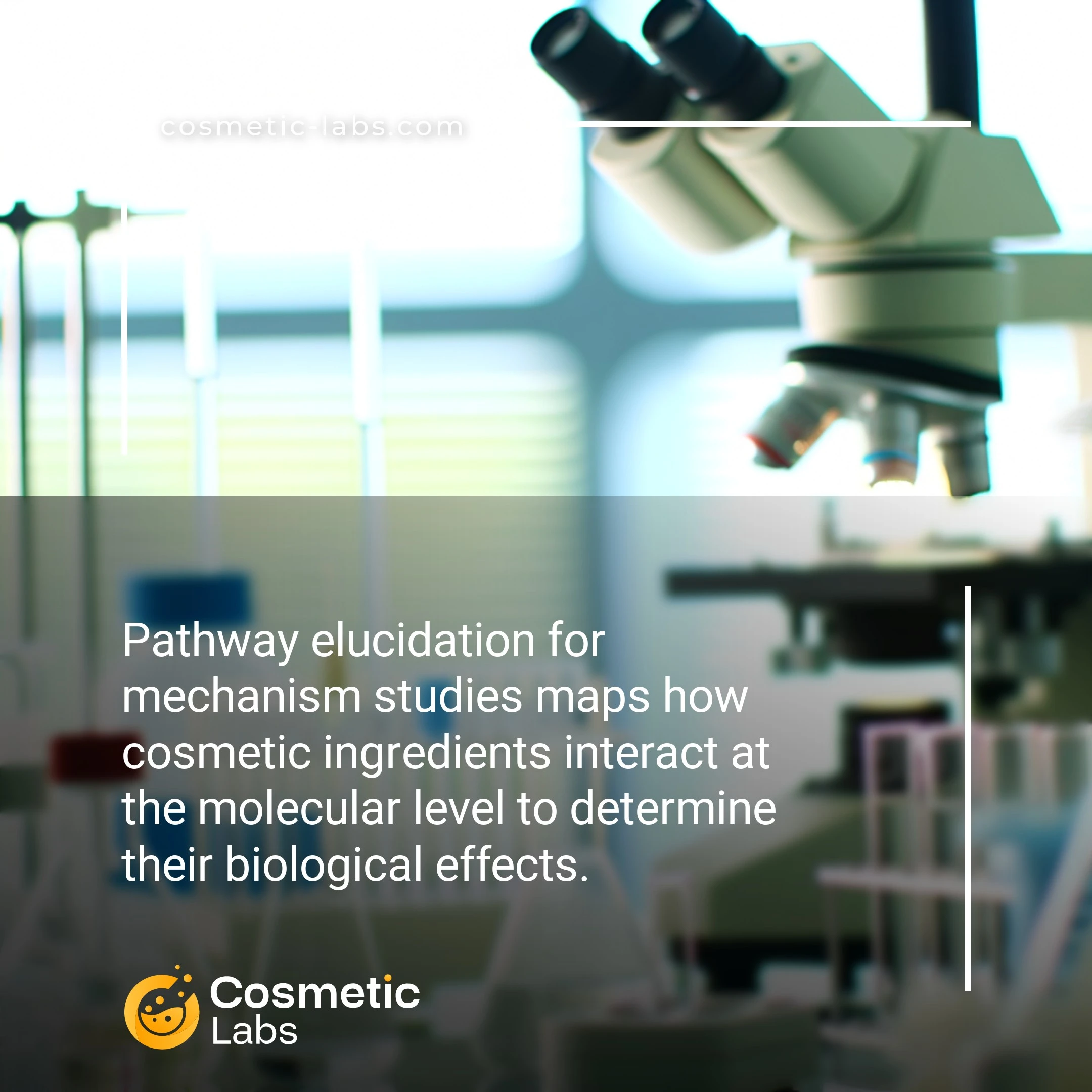Pathway Elucidation Services For Cosmetic Mechanism Studies

What is Pathway elucidation?
Pathway elucidation for mechanism studies is the systematic process of mapping how cosmetic ingredients interact with skin cells at the molecular level to produce their effects. Labs use advanced analytical techniques like gene expression profiling and protein pathway analysis to trace the complete biological journey from ingredient application to visible results. This service helps brands understand whether their anti-aging peptide actually stimulates collagen production or if their brightening complex truly inhibits melanin synthesis, providing scientific proof for marketing claims.
Why do you need this service?
Beauty brands leverage pathway elucidation studies to validate anti-aging claims by mapping how peptides trigger collagen synthesis or trace melanin inhibition routes for whitening products. These molecular roadmaps help formulators optimize ingredient concentrations, predict synergistic effects between actives, and build regulatory-compliant efficacy documentation that supports marketing claims while reducing costly reformulation cycles.
Who provides Pathway elucidation services?
All cosmetic labs providing Pathway elucidation services
There is no company providing these services at the moment.
Pathway Elucidation for Mechanism Studies Services
Pathway elucidation studies reveal how cosmetic ingredients interact with skin cells at the molecular level. These investigations map the biological pathways that explain why your active ingredients work, providing the scientific foundation needed for mechanism of action studies and regulatory submissions.
Molecular Pathway Mapping
Labs use advanced techniques like gene expression analysis and protein profiling to trace how ingredients trigger cellular responses. This process identifies which genes turn on or off when skin cells encounter your formulation.
Key analytical methods include:
- RNA sequencing to track gene expression changes
- Western blotting for protein activity analysis
- Immunofluorescence imaging to visualize cellular responses
- Metabolomics to map biochemical pathway changes
These studies typically take 4-8 weeks and help brands understand the biological mechanisms behind their product claims.
Regulatory Documentation Support
Pathway data strengthens your regulatory submissions by providing mechanistic evidence for product efficacy claims. Labs generate detailed reports that regulatory bodies accept as proof of biological activity.
Documentation includes pathway diagrams, statistical analysis of gene expression data, and interpretation of results in regulatory language. This scientific backing supports claims like “stimulates collagen production” or “reduces inflammation markers.”
Connect with specialized labs on our platform to discuss pathway elucidation studies for your specific ingredients and formulation goals.
Practical Applications of Pathway Elucidation for Mechanism Studies
Beauty brands use pathway elucidation for mechanism studies to validate ingredient efficacy and build compelling product claims backed by scientific evidence.
Anti-Aging Product Development
Labs trace collagen synthesis pathways to demonstrate how peptides and retinoids boost skin firmness. These studies map cellular responses from initial ingredient contact through protein production, revealing specific molecular targets. Teams measure gene expression changes at 24, 48, and 72-hour intervals to document the complete biological cascade.
Pathway analysis identifies which signaling molecules activate fibroblast activity and quantifies collagen type I production increases. This data supports claims like “increases collagen production by 40% within 72 hours” with documented molecular mechanisms.
Skin Barrier Repair Formulations
Mechanism studies trace ceramide restoration pathways to validate barrier repair ingredients like niacinamide and cholesterol derivatives. Labs monitor lipid synthesis enzymes and measure transepidermal water loss reduction over 14-day periods. These studies document how active compounds trigger natural barrier reconstruction processes.
Pathway mapping reveals connections between ingredient absorption, enzyme activation, and barrier function improvement. Results show measurable TEWL reductions and increased ceramide levels, providing concrete evidence for “restores skin barrier in 7 days” claims.
| Study Type | Primary Pathways | Key Markers | Timeline |
|---|---|---|---|
| Collagen Boosting | TGF-β, mTOR signaling | COL1A1, TIMP-1 expression | 72 hours |
| Barrier Repair | Ceramide synthesis, lipid metabolism | TEWL, ceramide levels | 14 days |
| Antioxidant Protection | Nrf2, glutathione pathways | SOD, catalase activity | 48 hours |
Ready to validate your ingredient mechanisms with pathway studies? Connect with specialized cosmetic labs on our platform to discuss your specific research needs and claim substantiation requirements.
